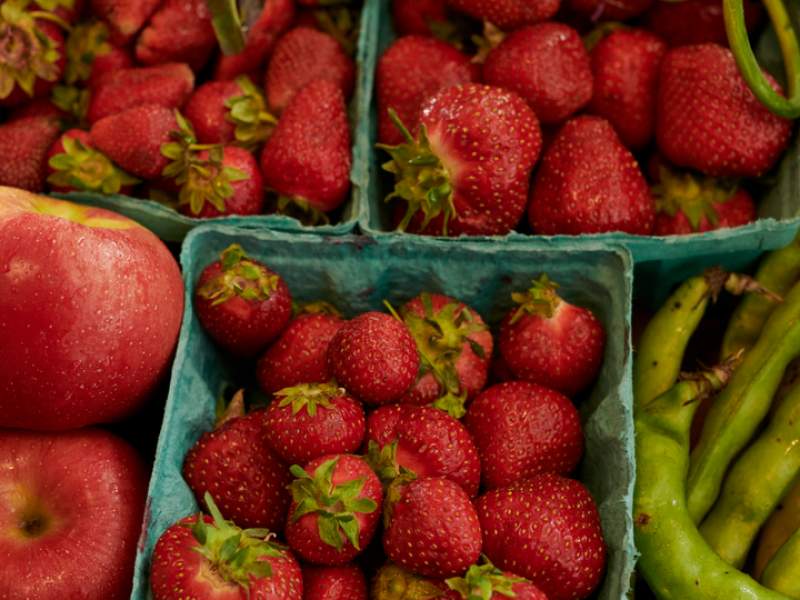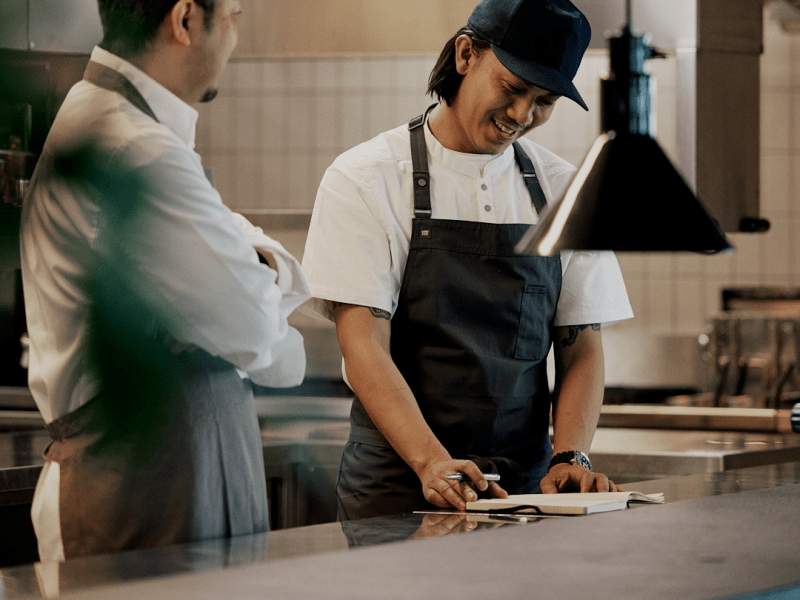Voedsel om over na te denken
Nu we aan een nieuw seizoen beginnen, verwelkomen we een verse oogst van seizoensgebonden winterproducten om onze smaakpapillen en borden te voorzien van nieuwe smaken en inspiratie. Van het verse fruit van appels, veenbessen, peren en kastanjes tot een spectrum van groenten gekleurd door pompoen, rode bieten, boerenkool, spruitjes en aardperen, nemen we een moment om het belang van lokalisme en seizoensgebondenheid te versterken door hoog naar de bergtoppen van Korea te kijken om na te denken over de waarden die de Koreaanse tempelkeuken definieert.

Lang voordat Alice Waters het startschot gaf voor de "slow food"-beweging in Amerika, voordat chef-koks van Noma de schijnwerpers richtten op voedsel uit de vrije natuur en ver voordat "farm-to-table" en "locavore" in de mode raakten en deel uitmaakten van het vocabulaire van de gemiddelde Noord-Amerikaan, verfijnden generaties van onbezongen meesters de technieken van fermenteren, dehydrateren en foerageren met ongeëvenaarde eerlijkheid in de stille schuilplaatsen van tempels in heel Korea.
De Koreaanse tempelkeuken bestaat al ongeveer 1600 jaar, sinds de oprichting van de Jinkwansa-tempel, en is gebaseerd op een paar eenvoudige principes die all op het boeddhistische concept van onthechting. De all ingrediënten en maaltijden zijn met elegantie en overvloed samengesteld om gezond te eten en in de juiste porties te worden geconsumeerd als bron van mentale en fysieke helderheid – een traditie van meditatie. Van de vele zenboeddhisten die deze kunst beoefenen, kijken we naar Jeong Kwan, een non die verblijft in de Chunjinam-kluis van de Baekyangsa-tempel, 272 kilometer ten zuiden van Seol, die de laatste tijd de aandacht heeft getrokken van enkele van de meest gerenommeerde internationale leiders op het gebied van gastronomie en wordt vergeleken met chef-koks als Michel Bras en Alain Passard, Dan Marber en David Kinch, René Redzepi en anderen.
Kwan gelooft dat de "ultieme keuken - de keuken die het beste is voor ons lichaam en het lekkerste in onze mond - voortkomt uit deze intieme band met fruit en groenten, kruiden en bonen, paddenstoelen en granen. Volgens haar mag er geen afstand zijn tussen de kok en zijn ingrediënten.
Of je nu winterse salades of verwarmende soepen maakt van de overvloed van de winter, we laten je achter met de diepgaande, eenvoudige woorden van Jeong om dit seizoen mee te nemen in je dagelijkse leven en maaltijden als je lokale en seizoensgebonden gerechten gebruikt:
"Laat de natuur ervoor zorgen." - Jeong Kwan.












